Yourspace.Sutton is more than a community garden. It provides workshops to kids, supports social therapeutic activities, and hosts local sustainable businesses in a horticultural environment. Tucked away in the back of the nursery of Seears Park in Cheam, at the edge of London, this hub is booming with activities. Its unique atmosphere and social impact is recognised in the several awards it has won over the years. Its protagonist is Kevin Plicio who single-handedly built up Yourspace.Sutton over an arduous fourteen years, facing one challenge after another. His perseverance and unwavering belief in what can be achieved is an inspiration for all with a dream.
How and why did you come up with the idea of taking over this plot of land to start a community garden?
This whole park and the nursery itself was bequeathed to the people by John Seear in the 1930s, who lived at a mansion nearby, and bought all this land. When he died, it was left to the local authority. After the 1990s the site became underused, and fell into disrepair. Pretty much the only activity was with the social services who used the park to bring adults who needed support in the community where they could learn about horticulture and be in a safe healing environment. I used to work for Merton College and a charity, delivering horticultural training for different types of community groups, such as adults with profound learning disabilities, adults with autism, or those with trouble with rehabilitation.
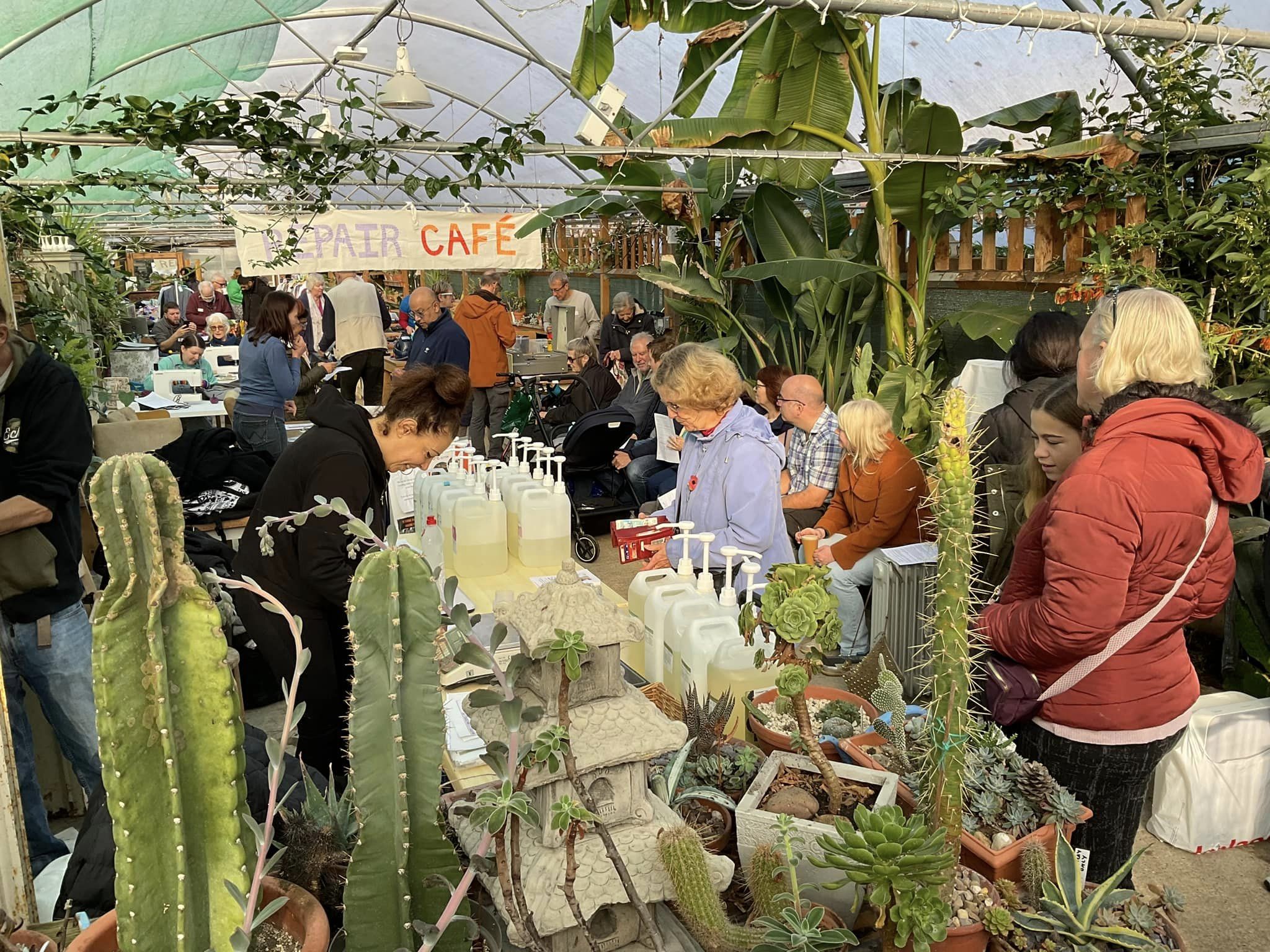
A lot of these horticultural training projects taking place in the park relied on funding and as soon the funding lapsed, the achievements or what were created came to an end. Around 2010 when London won the bid to host the 2012 Olympics all the funding that was going into colleges for horticulture training was cut. The money at Merton College which funded all of our trainer posts dried up. All of the trainers were offered voluntary redundancy, and Merton College ended their interest in the site.
I was thinking, “Oh, my God, this site is going to go empty. It’s already dilapidated and tired. Perhaps this is an opportunity for me to do something more permanent independently.” And that is how the idea came up for me to make something out of this space, and so I approached Sutton Council.
What kind of agreement did you work out with the council?
The Council had some challenges with the land. It’s in the back of a park that doesn’t really have a formal road leading to it. The existing access road is full of potholes, the facilities are basic. The Council was restricted on the use of the land: there had to be public benefit to justify the use of the land. So they couldn’t just hire it out to anybody. I offered to pay the lease for six months.
“It was a bold move, but I had a vision. I really wanted a space where instead of working behind closed doors, aimed at one sole type of service user, we could have a more cohesive space, open to the whole community.”
The license was to be paid on a month by month basis, and the agreement was originally for six months. Around this time, the council had been looking at other opportunities, but because they couldn’t find anybody interested, they had nothing to lose really from letting me have this temporary arrangement. And then as I managed to carry on paying the rent, they were happy. They were paid the same rent from me as they were getting from Merton college previously.

What kind services, activities did you offer to start with?
I was delivering horticultural training to people looking to make a career change. I approached Sutton Job Centre to find out if they have any long-term unemployed people who could benefit from something on their CV from work-based skills in a new profession in horticulture. The job centre started to refer service users to me, long-term claimants. For three years I had a contract with Duchy College to deliver these City & Guilds qualifications in Seears Park. This was on top of my day job doing garden landscaping. I used the space 2.5 days a week and it was closed for four and a half days a week. During this time the biggest stumbling block for me personally, was that the model of working privately away from the park to finance the lease was stopping me from achieving what I took the site on for to develop because I wasn’t spending enough time there. So I came up with a business plan that would enable me to work full time at the park.
What was this more extensive business plan?
In 2011 I went to Sutton local committee and I made a presentation to the council to make the deal long term and more extensive. There is a beautiful but dilapidated cottage in the park which has been in disuse. I wanted to renovate the cottage and use it as a cafe. The response from the council did not convince me that they were very serious about our prospects long term.
So then I changed tactics. I had a builder friend whose best friend was an architect. They were both personally passionate about the project and they decided to pull their own money together, and fund the cottage renovation. We aimed to get match funding from the council. The idea was to get a lease for the whole nursery including the cottage. Upstairs of the cottage we were going to have accommodation for somebody connected with the project, someone who needs some sort of social housing, and the income from the flat above the cottage would help subsidise the cafe.
In 2016 shortly after having secured planning permission, we got a lease offer by the council, but it didn’t reflect the original business model that we had submitted, and was based instead on commercial lease standards. Basically, it priced us out of the process. We spent the next two years back and forth trying to convince the council of all the social benefits of the space but as we didn’t succeed, my funders lost heart and pulled out of the project. I also gave up on my dreams about using the cottage.
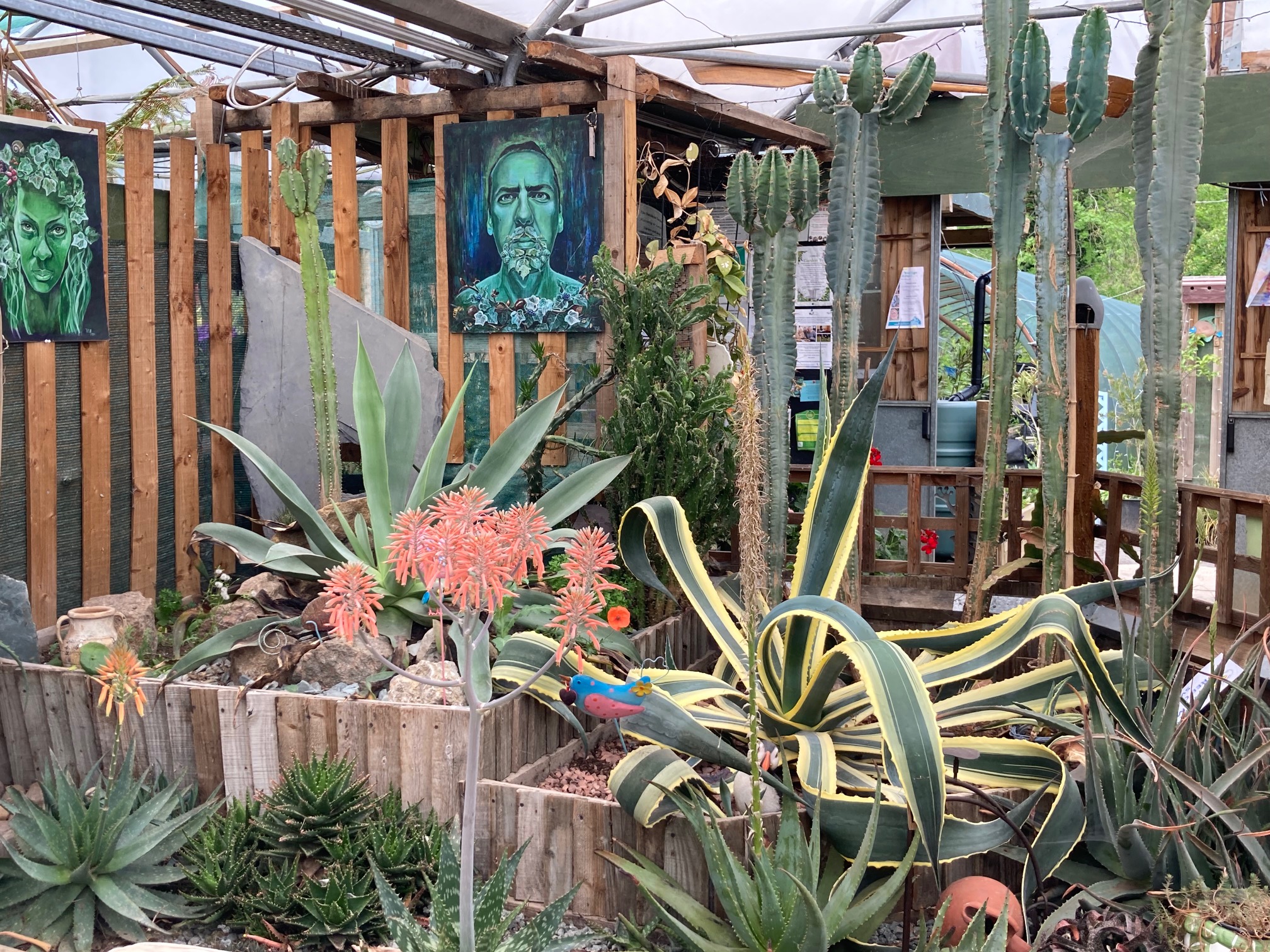
Putting the huge disappointment of the failed cottage bid behind me, I started a tea room in a wooden porter cabin, which used to be my classroom. Project volunteer Trisha, who is an artist, and long-time friend, painted the walls with nature murals.
“It was starting to get popular when just over a year after opening in January 2019, vandals came in and burned it down in the middle of the night.”
The fire not only destroyed the tea room but also the disabled toilet block, and my office as well. I thought that was it. One challenge after another. I thought I might have to walk away from this but I had such a strong response from the local community. There was a local fundraising campaign that raised 8000 pounds to help me get through the worst of the initial repairs. It was only in 2022 that I had the basic facilities restored back.
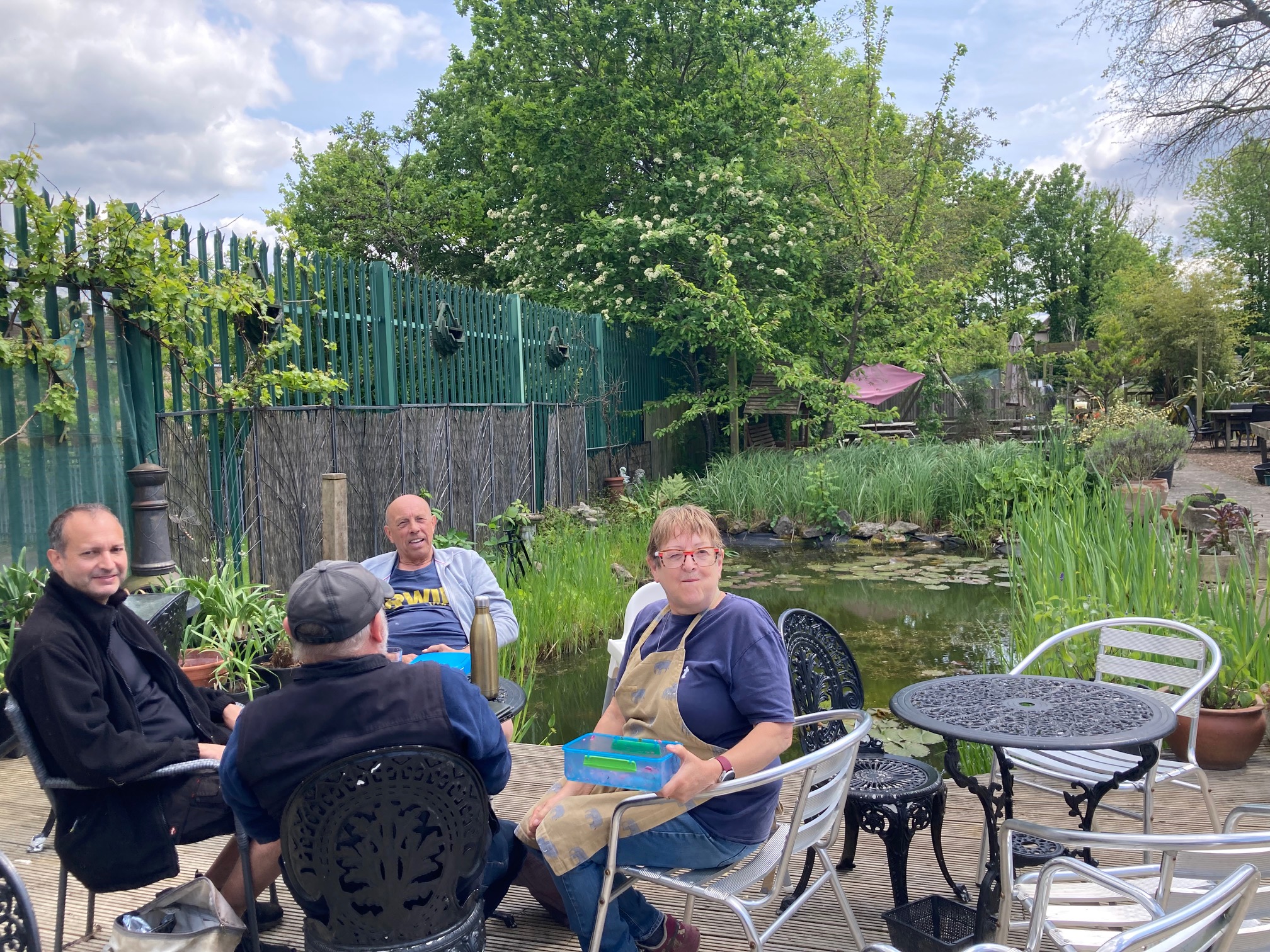
It was so frustrating because I started the whole process in 2010 but the community response resulted in me picking myself up and putting all my energy back into developing this space.
What’s your current business model? What activities bring you income for the lease?
I still rely partly on off-site income, my private work in landscaping and grounds maintenance, if you like. And on site, I have eight weekly school workshops for local schools, private schools, or specialist groups like Sutton Tuition and Reintegration Service for children who have been hospitalised and have missed out on much mainstream education. I do lots of themed workshops tailored to the needs of a particular visiting group. A lot of school groups, workshops are tailored for people who are transitioning into from school, maybe into college, or leaving college.
I probably have about 30 or so 14-15 year olds who are participating in the Duke of Edinburgh Award with their school. Duke of Edinburgh Award helps kids to kind of get a qualification but also develop some skills, and engage with the community. Most of them do their community volunteering here, on a Saturday. They are involved with different tasks, all gardening related.

On the weekends I host birthday parties. The space is hired for two hours, and I run a horticultural themed activity, for example how to take a cutting from a plant and grow it at home. Then I have activities for slightly older children, mostly teaching about things like plant needs or composting.
I have a small income from plant sales. It is not a huge business because all the plants we sell are generated on site. Everything you see is either been donated or we grow ourselves. And then we have our own tea room. The tea room is open five days a week, excluding Wednesdays & Sundays. I think in the long term, it will probably have to be open longer. There are regular workshops and group meetings taking place here.
Sutton Community Champions is a local social enterprise. They are a volunteer-run group, rescuing hundreds of tons of surplus vegetables which they distribute to food banks, schools, soup kitchens, care homes, charities, volunteer groups and families, and they run a once a month free clothes swap shop here.
Zero Waste Sutton is a refill team, a husband and wife run it. They refill laundry detergents, house cleaning and personal care products with cruelty free, biodegradable, plant-based products. They are here two days a week, and since they started with us in 2020, they have refilled more than 10,000 bottles. That’s 10,000 would have been single use items of plastic that will go into the recycling system!
Sutton Repair Café encourages a culture of repair and reuse in our community. It is a group of about 20 volunteers who repair everything you bring here: your lawn mowers, electricals, clothing and textiles, and bicycles. They are here once a month. We can see the growing impact and community take up, the last Repair Café event was the busiest.

These organisations wouldn’t be able to easily exist if they were on their own. Yourspace.Sutton community garden in a way helps to connect them to a larger audience, through our Facebook followers for example.I charge them a very minimum rent only. So everyone benefits.
Could you tell us more about your core values to do with upcycling and reclaiming?
“Everything you see here is reclaimed and upcycled.”
The tables you see were thrown out by Morden Garden Cafe when they had a renovation. Our volunteers sanded them, varnished them. Other tables came when the residential care home in Kingston Council closed down. I brought them here. We have chairs I got from Cheam Bowls Club when they had brand new chairs delivered. We also have random things from different people’s gardens and conservatories. For the planters we have upcycled old “meals on wheels” trolleys and built wooden carcasses around them. They came from the ex-Kingston Council care homes after they were closed down. I know about all these opportunities through working on grounds maintenance for them or just by coming across the thrown out furniture on my way somewhere.
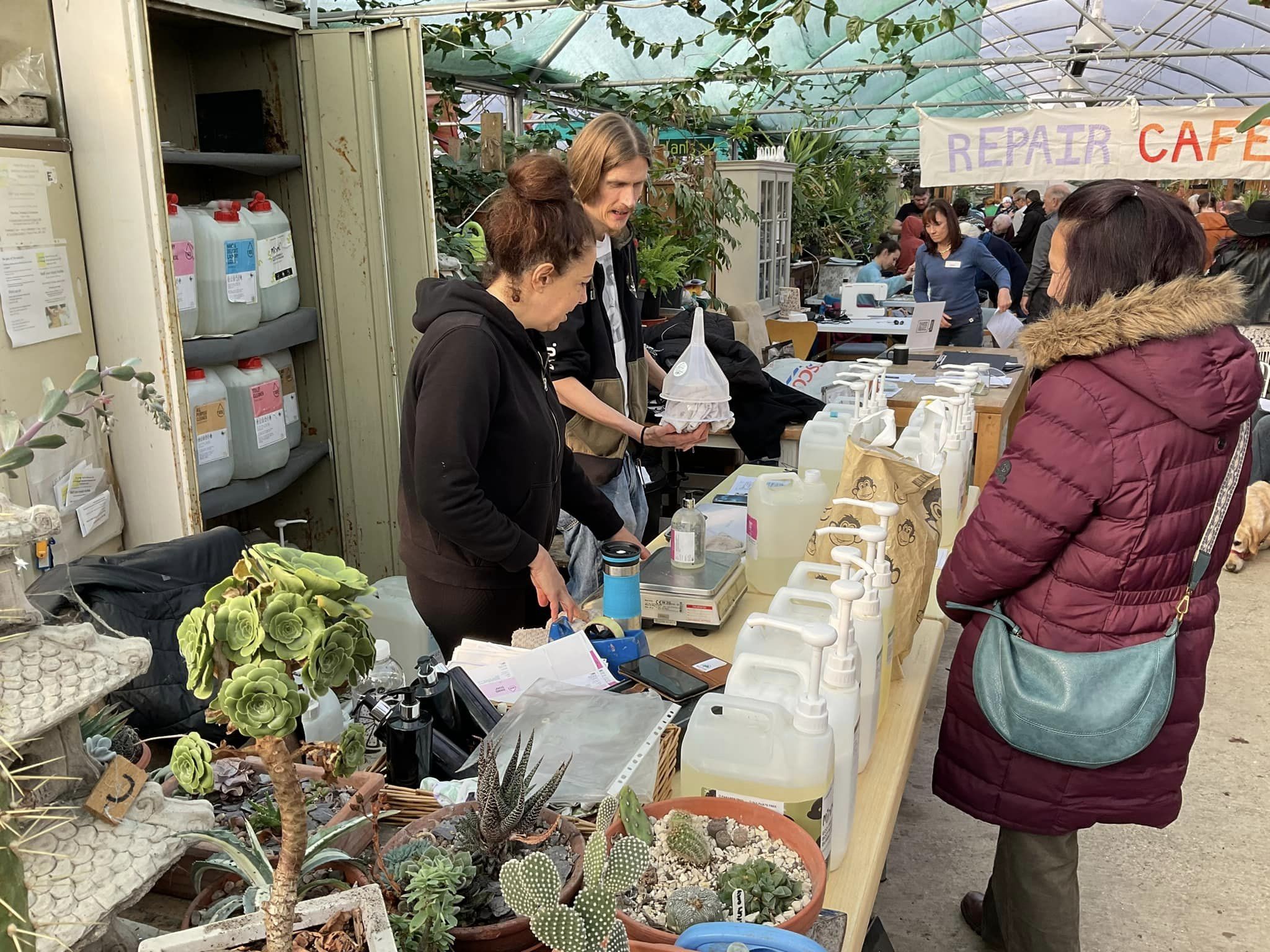
Who are the people who come here? How do people know about this project?
I’m involved with the Friends of Seears Park and Perretts Field friends group, I also conduct research celebrating all the history & heritage in the local area connected with the location. Part of the reason I started this research project is to get people engaged with and feeling proud of the legacy of the park and the cottage, which will help me convince the council later on that the cottage is worth saving, because I have local support for it. Over the years, I’ve managed to raise the profile of what I’m doing here. And we have a Facebook page which has grown in numbers and support. I would say most people who come here are either people who know us through word of mouth, or who have come to a party that their child was invited to, and discovered it as a place where they can come to have a coffee, or to various craft fairs and workshops, or just to enjoy a calm therapeutic escape from the usual day to day hustle and bustle.
What are the ways Yourspace.sutton supports social integration?
The groups I work with normally access any kind of learning opportunities in a very safe-guarded environment. Such environments used to be called sheltered workshops. For safeguarding issues, these groups may have been taken somewhere where there’s no element of surprise, or no unauthorised access to the community and so on. But that only bred a feeling that these people are not integrated into the community. And when they are seen somewhere, they’re looked at as a threat, or with some scrutiny.
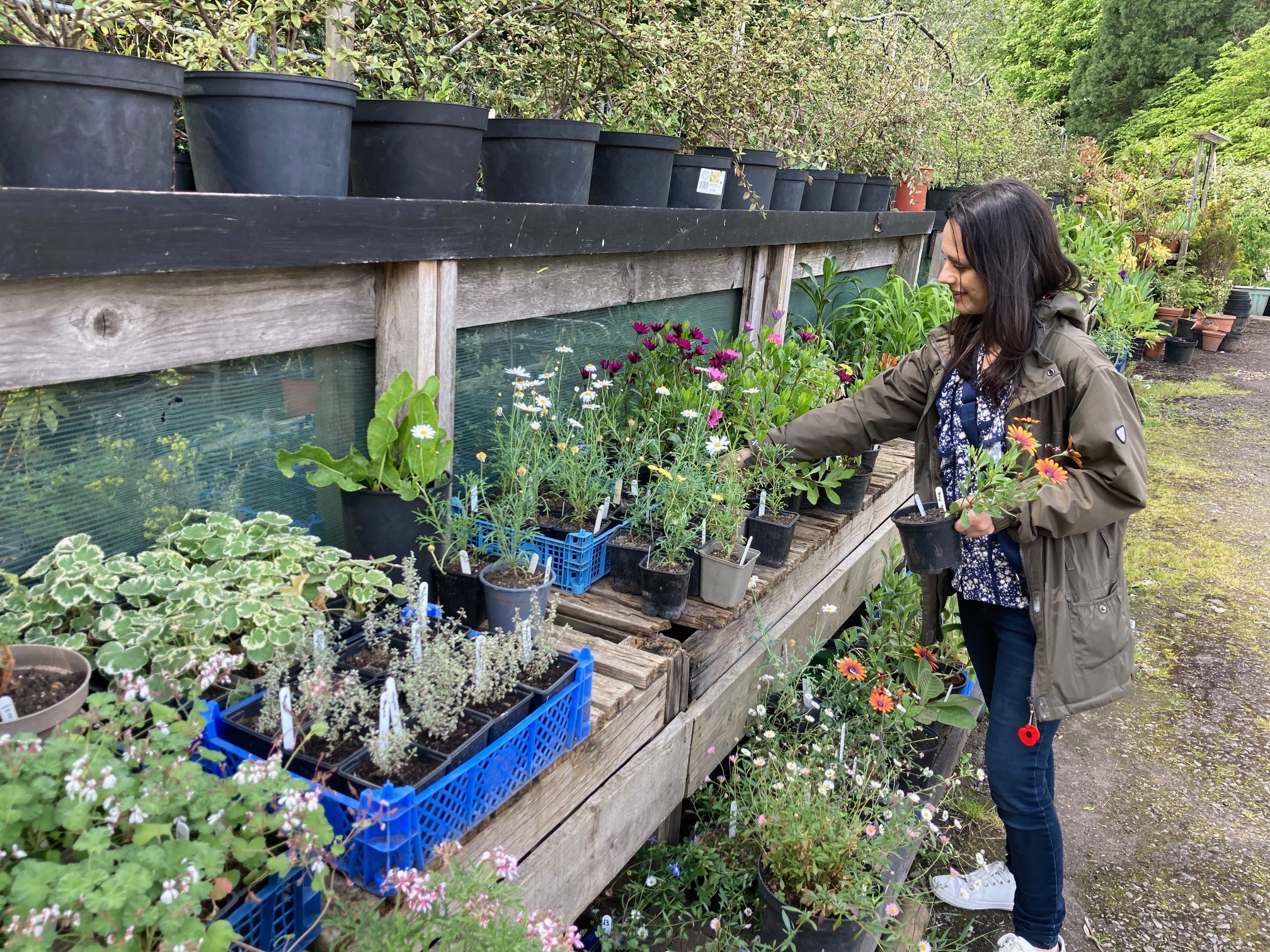
I deliver all of my trainings and all the workshops around the tea room which is full of visitors.
“So these visitors are used to seeing groups with difficulties and challenging behaviour as being very part of the normal part of the site and society.It is the same for the service user, who comes to an environment and learns to cope in a noisy environment”.
We have lots of groups who come with various disabilities who access Yourspace at a time where the public community is also here, sharing its benefits.
How do you see the future of Yourspace.Sutton?
We just had a meeting with the council about making a new proposal to take on the cottage and garden, and attempt some kind of community rebuild, or community ownership of the cottage. Actually we are currently in partnership discussions with the NHS, as they are looking for suitable community venues where they can do more social prescribing and help get people off long term prescriptions for things like anxiety and depression, or where regular prescription medicine has not really helped. Social prescribing is a holistic approach to healthcare that enables GPs, nurses and other primary care professionals to refer people to a range of local, non-clinical services to support their health and wellbeing. We are still in development discussions about this idea for the cottage.
Legacy is the most important part to me. Over time, people who were part of my core team fell away for whatever reason, I realise now more than ever how important it is to secure a lasting legacy now, especially that the place has been embraced by the community so much here. I’m always in conversations with partnering bodies, organisations and community groups about how to move things forward. My long term aim is for Yourspace.Sutton is to become a charity and secure a long term lease and turn the derelict Park cottage into a well-being community hub and heritage centre. Now to that end, I’m in constant development conversations with the NHS and the local primary care teams and various community groups that might come together and use it.
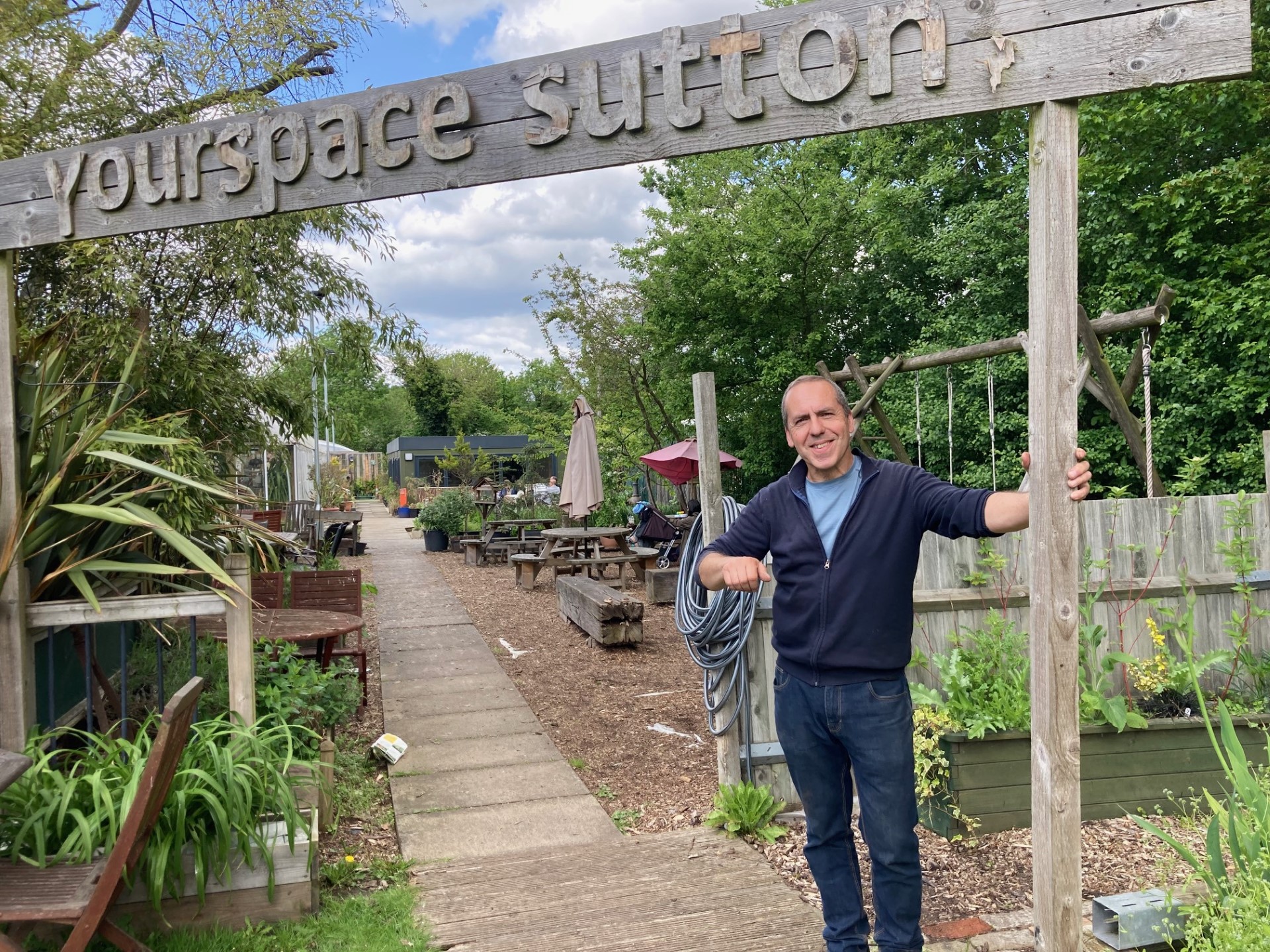
Where do you find the energy?
I’m a very people-oriented person. I grew up working in my parents’ shop, I was always surrounded by hundreds of queuing people, so I learned to grow up fairly competent around people, and having to be able to think on my feet. When you have people around you, you can be resourceful and creative, and you can express your creations. Whereas when you’re on your own, challenges seem bigger, and while you can have many ideas, the way to achieve all those are very limited. At the same time, I do still from time to time feel overwhelmed by the scale of what always needs doing and the constant challenges that need overcoming, I can get a screaming feeling in my stomach. As more people love what is going on here, the more their expectations grow and the more I feel I have to always step up.
Interview by Sophie Bod


